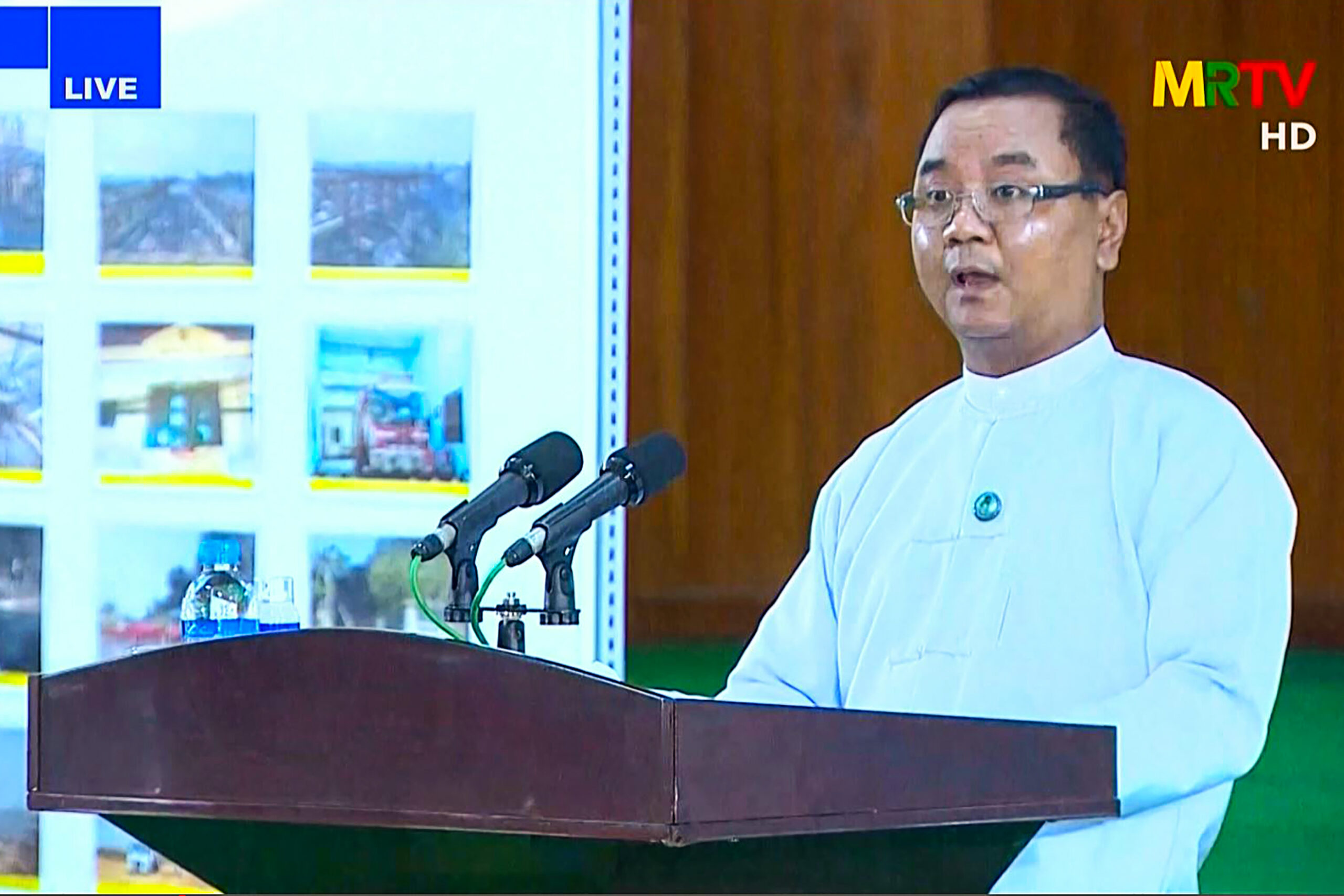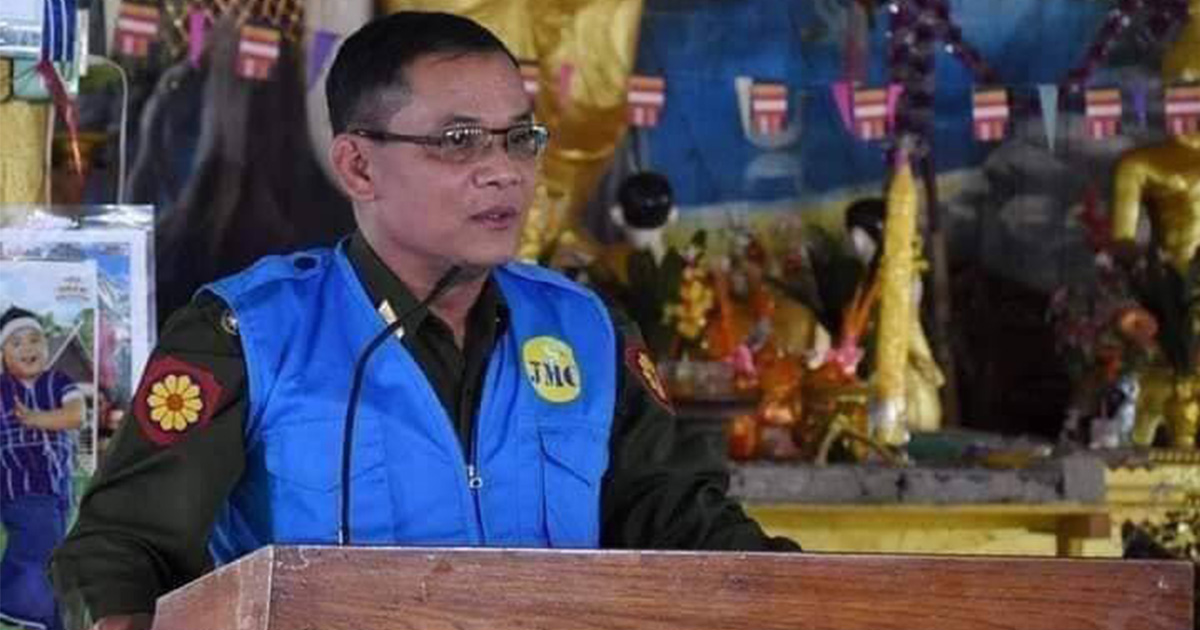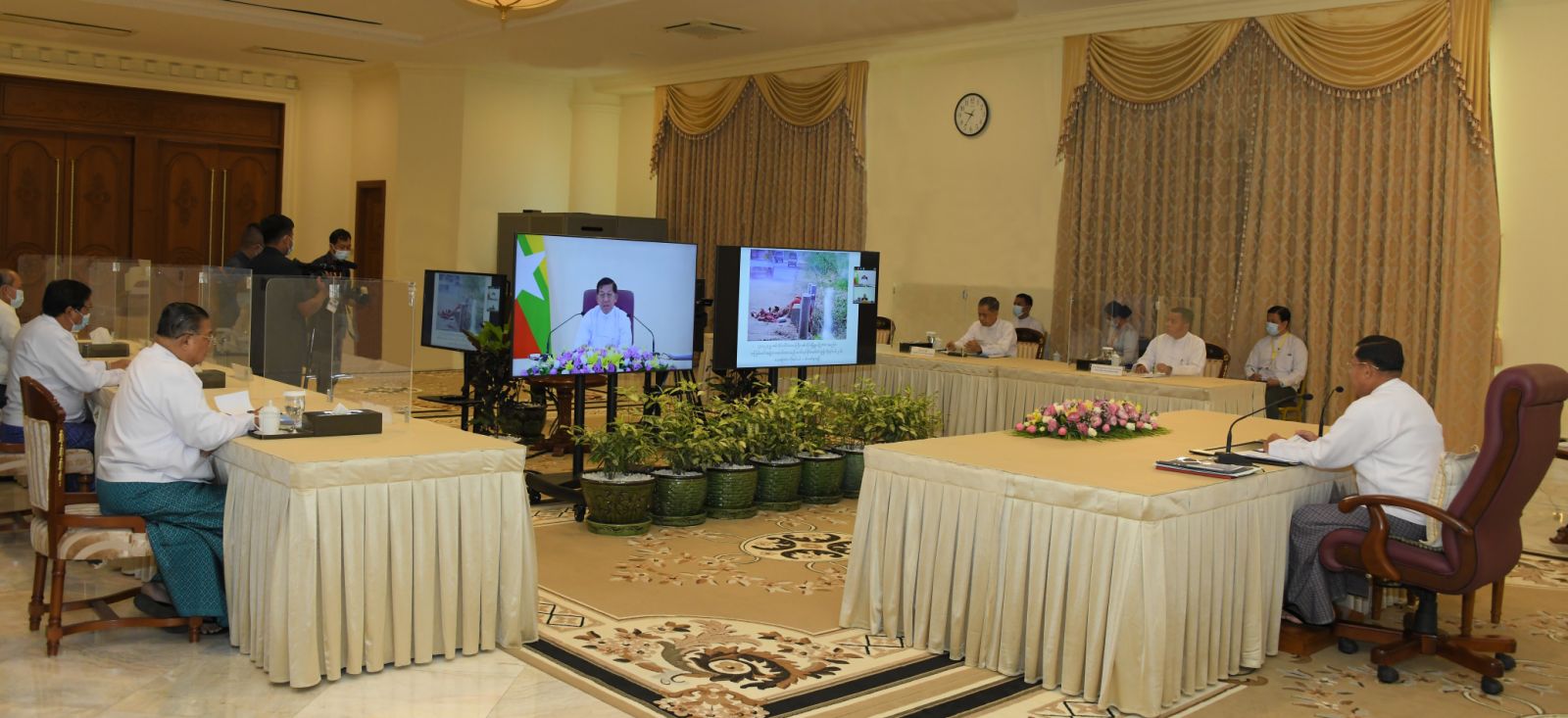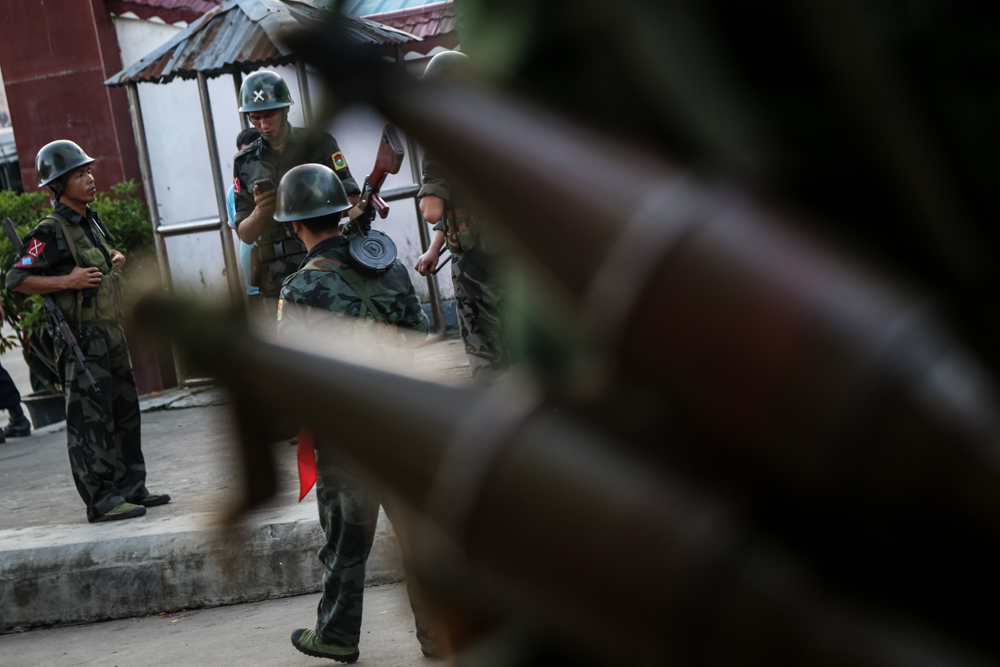Junta admits administration collapsing in resistance hot spots

In an interview with media outlet Voice of Myanmar, regime spokesman Major-General Zaw Min Tun admitted that the junta’s administrative mechanism is not functioning properly in northern Sagaing, Chin State and some places in Kayah, all of which are resistance hotspots.
He attributed the regime’s difficulties in these areas to the fact that village administrators had been killed and had yet to be replaced. On the ground, despite its air power and superior numbers, the regime still has not been able to contain the resistance movement in those regions.
Meanwhile, the Home Affairs and Immigration Ministry of the parallel National Unity Government said interim administrations are operating in Indaw, Kyunhla, Wuntho, Katha, Tigyaing, Kanbalu, Banmauk, Pinlebu and Kawlin townships in Sagaing Region, adding that these would soon be joined by 19 other townships in Sagaing. Six townships have parallel administrations in Magwe Region, it said.
The NUG’s legislative body, the Committee Representing Pyidaungsu Hluttaw, has enacted a People’s Police Force Law to regulate law enforcement in areas controlled by resistance forces.
Deputy home affairs minister replaced

The military regime has replaced its deputy home affairs minister and police chief, Lieutenant General Than Hlaing, who was tasked with crushing People’s Defense Force (PDF) groups in Sagaing and Magwe regions and Chin State, saying he has been recalled to military duty.
The replacement follows the failure of operations Anawrahta and Alaung Mindaya, which were designed to crush resistance forces in Sagaing, Magwe and Chin with air raids.
In January, Lt-Gen Than Hlaing was forced to step down as the chief of Bureau of Special Operations 6, which oversees attacks against PDFs. Around the same time, Major General Phyo Thant, the head of the military’s North Western Command, which oversees Sagaing, Magwe and Chin, was also transferred to the Home Affairs Ministry as deputy minister.
With Lt-Gen Than Hlaing, who graduated with the 29th intake of the Defense Services Academy, set to resume military duty, the only position that is vacant at present is Chief of Armed Forces Training. A reshuffle is expected at the upcoming meeting of the junta leadership.
Deputy junta chief seeks to staunch flow of defections in Tanintharyi
Deputy junta chief Soe Win visited Tanintharyi Region, where the South Eastern Command and Coastal Region Command are based, on May 1-3 to boost the morale of military personnel, who have been hit hard by PDFs there.
The regime is using troops from the South Eastern and Coastal Region commands to fight in Kayah and on the Myanmar-Thai border. Junta troops have suffered casualties and some have fled their outposts in those clashes.
Clashes broke out in Dawei, Myeik and Pulaw after PDFs attacked a key police station on the Dawei-Htee Khee road on April 24, one week before Soe Win’s visit. Before that, junta troops suffered heavy casualties in mine attacks by PDFs.
Soe Win traveled to battalions in Myeik, Kawthoung, Dawei, Pulaw and Bokepyin along with the commanders of the South Eastern and Coastal Region commands, and urged personnel to remain loyal to Myanmar’s military.
Meanwhile, explosions took place at government departments and administration offices, and anti-coup protests continued in Tanintharyi Region, which borders Karen State. Myanmar’s military is struggling to retain its personnel amid a rising number of defections and daily clashes with PDFs.
No Suu Kyi meeting for ASEAN envoy

Regime chief Min Aung Hlaing effectively turned down the Association of Southeast Asian Nations (ASEAN) chairman’s request to let his special envoy meet with Myanmar’s ousted democracy leader Daw Aung San Suu Kyi by saying he would allow “meetings with other parties concerned.”
Cambodian Foreign Minister Prak Sokhonn, who is the ASEAN Special Envoy for Myanmar, plans to visit the country for the second time late this month.
No special envoy on Myanmar, including from the UN, has so far been allowed to meet Daw Aung San Suu Kyi, who has been detained by the junta at a secret location in the country’s capital Naypyitaw since last year’s coup. The junta claims the country’s laws prohibit international dignitaries from meeting anyone who is on trial. The detained leader has faced a series of trials on charges filed by the junta.
Former ASEAN envoy for Myanmar Erywan Yusof last year declined to travel to Myanmar after the regime failed to grant his request to meet Daw Aung San Suu Kyi.
KIO snubs junta

One of Myanmar’s largest and oldest ethnic armed groups, the Kachin Independence Army (KIA), embarrassed the embattled Myanmar junta by refusing to join its peace talks, saying they are not all-inclusive and ignore the country’s ongoing issues.
Engulfed by year-long clashes with newly formed anti-regime resistance forces who have been fighting along with ethnic armed groups like the KIA to topple the regime, Min Aung Hlaing’s offer of peace is, many believe, a pretext to persuade the armed groups to stay away from the resistance forces.
However, aside from the Kachin armed group, many ethnic armed groups are now officially or unofficially supporting Myanmar’s shadow government and its anti-regime fighters. With the KIA’s rejection, the regime’s peace plan seems a nonstarter, as the junta looks set to suffer even more in Myanmar’s northwest, a resistance stronghold where battle-hardened Kachin soldiers and strongly motivated resistance fighters have already inflicted heavy casualties on junta troops.
You may also like these stories:
Myanmar’s Revolution Must Succeed: NUG Humanitarian Minister
Regime Forces Loot and Torch Over 200 Houses in Upper Myanmar
Myanmar Junta Officially Endorses Militias to Attack Anti-Regime Civilians

















